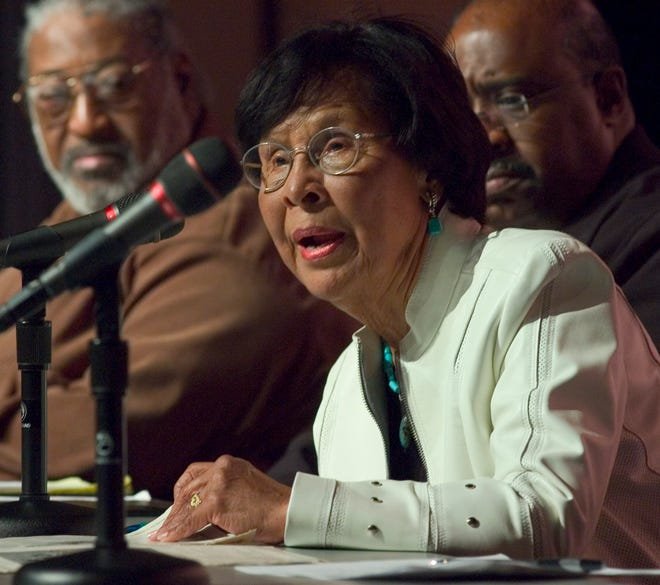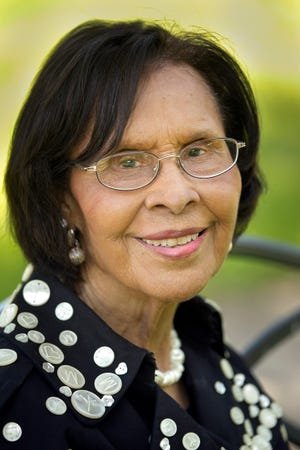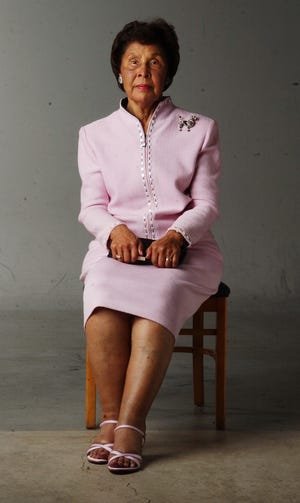

Ada Anderson
October 2, 1921 - June 3, 2021
Born in 1922, Ada Cecilia Collins Anderson, civil rights activist and arts advocate, has died at 99, after a life of many firsts and of giving back to educational and community institutions in Texas.
Anderson died June 17th in her home of natural causes, according to relatives and family friends.
The first African American elected to the Austin Community College Board, Anderson's pursuit of education led her to become the first to enter many spaces as a Black woman, in spite of the segregation that was pervasive in Texas the first half of her life.
Years before her landmark election to ACC's board in 1982, she became the first African American to enroll at the University of Texas's Graduate School of Library Science, and completed the courses for a master's degree in 1951, but she could not finish the fieldwork required for the degree because she was not allowed into the Texas State Library.
The experience reinforced her lifelong commitment to civil rights, according to The History Makers Archive.
She also became the first Black woman to sit on a bank board in Austin, and, in the 1960s, fought against racist restrictions in Austin, including by boycotting a skating rink that opened on Airport Boulevard. "Although there had been student picketing and sit-ins on the Drag before that time, the Ice Palace was the first time in Austin that a protest of segregation was organized and carried out predominantly by African American adult citizens," Anderson previously told the American-Statesman about the yearlong boycott. The rink went bankrupt, and Anderson formed the Austin Human Relations Commission, a coalition of pastors, professors and community members that continued working against local segregation.
She also established the real estate and insurance firm Anderson-Wormley with her late husband, Marcellus J. "Andy" Anderson, the first African American real estate agent in the South.
Together, as millionaires, they helped provide affordable housing for African Americans in Central Texas and gave back to the community.
In 2014, Ada Anderson made a historic $3 million donation to Huston-Tillotson University for its Sandra Joy Anderson Community Health and Wellness Center, renamed after her deceased daughter.
“She’s everyone’s hero, whether you’re young or old, Black or white, rich or poor,” Luci Baines Johnson, daughter of President Lyndon Johnson, said at the time about Anderson. “She’s someone we all want to be like.”
She also served on gubernatorial commissions and numerous local boards, including for the Laguna Gloria Art Museum, and championed arts opportunities for low-income and minority youth through the Leadership Enrichment Arts Program, which she founded in 1989. Her love or art and music stemmed from her family, she once told the Statesman. "You have to realize that when a group of people have been totally excluded for generations, it takes a long time for that group to feel included," Anderson said. "And when you haven't been exposed to it, it doesn't occur to you to be involved. That's why LEAP has been so exciting."
Her family also had a trailblazing history in Central Texas. Her great-grandfather Newton Collins, a twice-freed slave, helped develop the area near what is now known as McKinney Falls State Park and built the first school in the area in the late 1800s. The Del Valle school district named one of its schools after him in 2018.
Anderson attended her great-grandfather's school and graduated from the Austin school district's Black-only L.C. Anderson High School in 1937 before enrolling in then Tillotson College for her first college degree in in home economics in 1941. She also earned a master’s degree in educational psychology in 1965 from UT.
She was inducted into the Texas Black Women’s Hall of Fame and the African American Women’s Hall of Fame in 1986. The Texas House of Representatives also honored her in 2005. UT's Briscoe Center holds a collection of her and her husband's papers.

